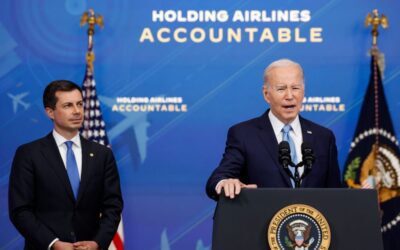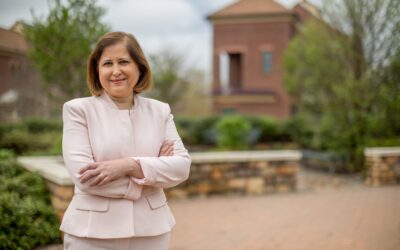
Jeff Say, a father of three who has experienced difficulty with limited broadband access in rural America, speaks during an event about high speed internet infrastructure, in the East Room of the White House, Monday, June 26, 2023, in Washington. (AP Photo/Evan Vucci)
When Jeff Say and his family moved to Boston, Virginia two years ago, they fell in love with their home.
The house had everything they wanted: plenty of space for his three daughters to play, beautiful views, and good neighbors. Say was also told they’d have no problem getting internet access, even in rural Culpeper County.
“But the day we moved in, our ordeal began, as service providers told us we would have to pay tens of thousands of dollars to run a line to our house. Their service stopped a half-mile down the road,” Say said as he recounted his family’s ordeal during an event at the White House on Monday.
Due to the lack of affordable internet options, Say and his family have relied on a hotspot and struggled to access reliable internet.
“We have to drive our children into my work, to my wife’s school, or to our county library to finish projects or homework assignments,” he said. “Every aspect of our daily life has now seemingly been touched by internet access; education, health, commerce, and entertainment.”
Say, who works at UVA Health Culpeper Medical Center, was invited to the White House as part of an event highlighting the Biden administration’s massive new $42.5 billion investment in expanding broadband, including $1.5 billion for Virginia to expand access to high-speed internet for families and small businesses who currently lack it.
The funding comes from President Biden’s Bipartisan Infrastructure Law, and is being distributed through the Broadband Equity Access and Deployment Program, which was created under the law.
In Virginia, money will be overseen and distributed by the Virginia Telecommunications Initiative, within the Department of Housing and Community Development, and grants will be allocated to unserved locations in the state.
Nearly 365,000 people in the commonwealth lack access to high-speed broadband internet, according to estimates from the Federal Communications Commission. The true number may be even higher, however, as it is notoriously difficult to identify individuals and businesses that lack access to broadband.
The issue is particularly salient in rural communities, like Culpeper County, which are far more likely to lack access to broadband. Since rural communities are more sparsely populated and residents can be spread out over miles and miles, it’s expensive for internet providers to build out broadband infrastructure there, and the smaller populations mean limited profits.
The result is communities like Say’s are left without reliable options.
“We now know that in Culpeper County, there are 4,300 unserved homes when it comes to high-speed internet access,” Say said at the White House.
And even in rural areas where broadband does exist, internet companies often charge exorbitant rates due to the limited customer base and lack of competition. That’s why many broadband advocates and lawmakers argue that internet access should be treated like a utility, and that federal investments are necessary.
“The reality is that reliable, affordable high-speed internet is a utility, not a luxury,” Say said, before thanking the Biden administration for its efforts to bring the country’s internet infrastructure into the 21st century.
Expanded broadband service would also help Sonya Price, a resident of Varina in eastern Henrico County.
Price works at Fort-Gregg Adams and moved to Henrico County in 2017. Although she previously had access to broadband, she now uses hotspots which she says provide “patchy service,” and frequently runs into data limits which require an extra monthly payment to exceed that limit.
The lack of reliable internet has also limited her job prospects.
“I want to do a part-time job from home, but a lot of those companies require broadband,” she told the Richmond-Times Dispatch. “You can’t use a hotspot.”
Terry Mills, another resident of Varina, lives in a neighborhood that lacks broadband. He told the Richmond-Times Dispatch that he and his wife also use hotspots, and run into similar issues. When his daughter was in high school, she also had to use them.
While it’s unclear exactly which communities will receive funds from the Virginia Telecommunications Initiative, state lawmakers celebrated this week’s news.
Rep. Abigail Spanberger called the grant announcement “a landmark moment in our work to close the digital divide across Virginia — and the economic benefits of this investment will benefit every Virginian.”
Virginia Sen. Mark Warner, a former telecommunications executive and governor who played a leading role in shaping Biden’s infrastructure law, said in a statement that this funding brings the state “a giant step closer to achieving the goal of universal broadband coverage” and that “access to fast, reliable, and affordable internet is crucial to ensuring rural communities grow and thrive.”
Due to these investments, and other local ones, Say is optimistic about the future of broadband in his community.
“Thankfully, our county has started a broadband initiative to serve the underserved,” he said at the White House. “We don’t have it yet, but I know it’s on the way thanks to folks here today.”

Biden sets 10-year deadline for cities to replace lead pipes and make drinking water safer
A decade after the Flint, Michigan, water crisis raised alarms about the continuing dangers of lead in tap water, President Joe Biden is setting a...

Opinion: We must help communities that have been left behind, no matter who wins in November
In this op-ed, Justin Maxson and Sarah Jaynes advocate for prioritizing federal investments to uplift all communities and ensure widespread economic...
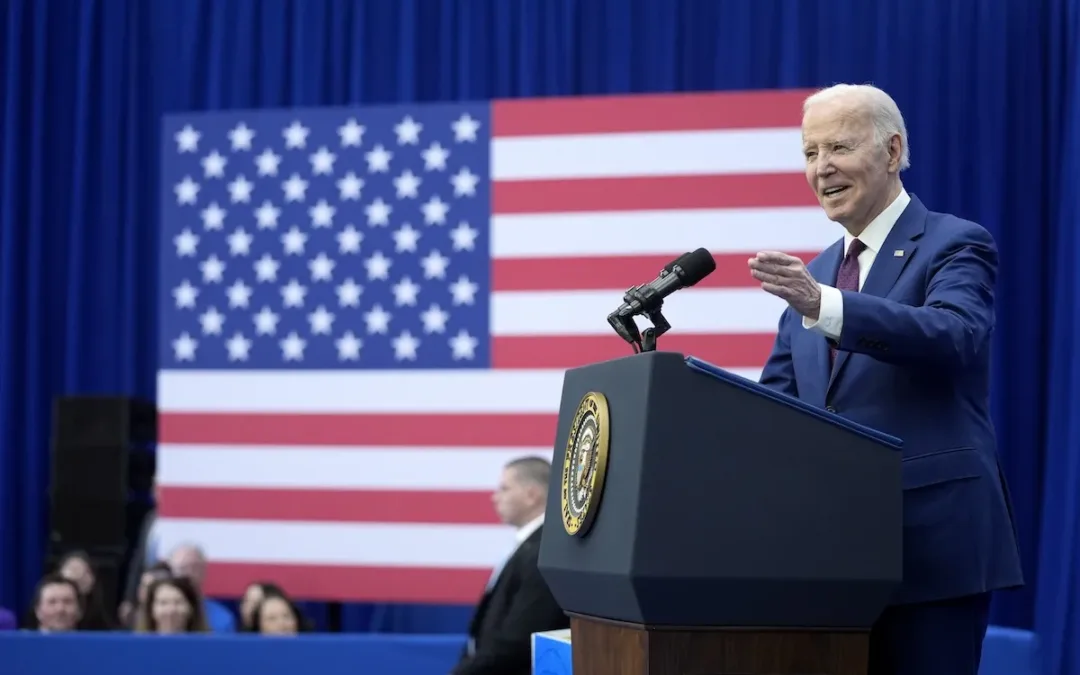
Hampton Roads, Stafford County road improvements coming thanks to Biden’s infrastructure law
“The bipartisan infrastructure law is continuing to deliver for Virginia’s communities,” said Rep. Abigail Spanberger. With billions already on the...
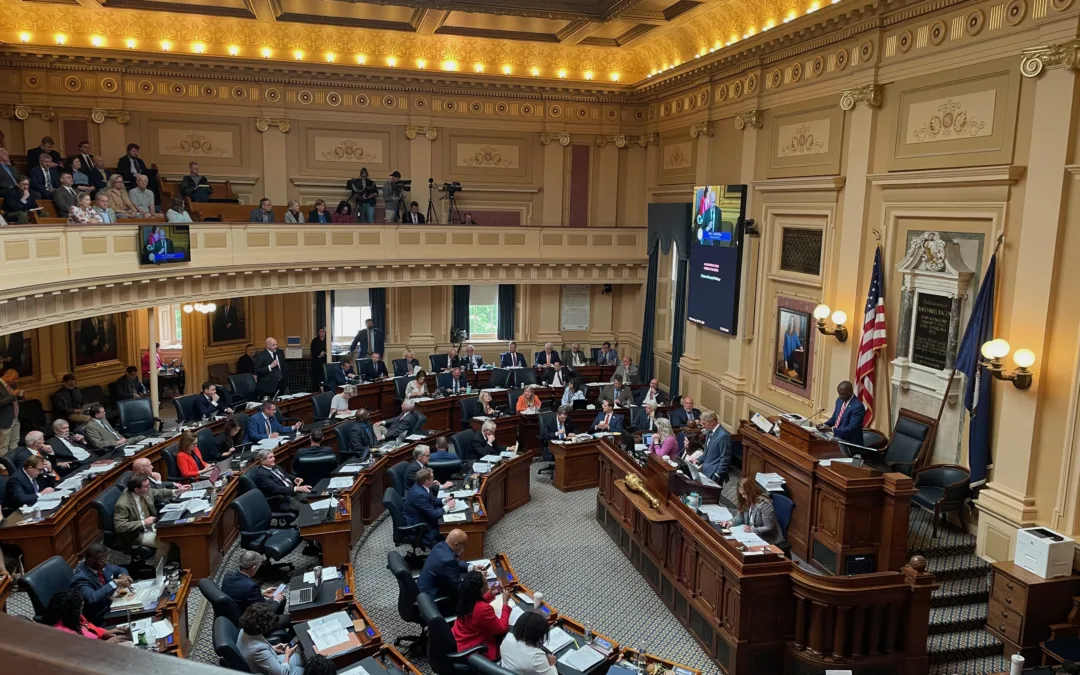
State budget compromise reached by Youngkin, General Assembly leaders
The General Assembly is expected to vote on a new state budget on Monday after Youngkin and Democratic legislators reportedly struck a compromise....
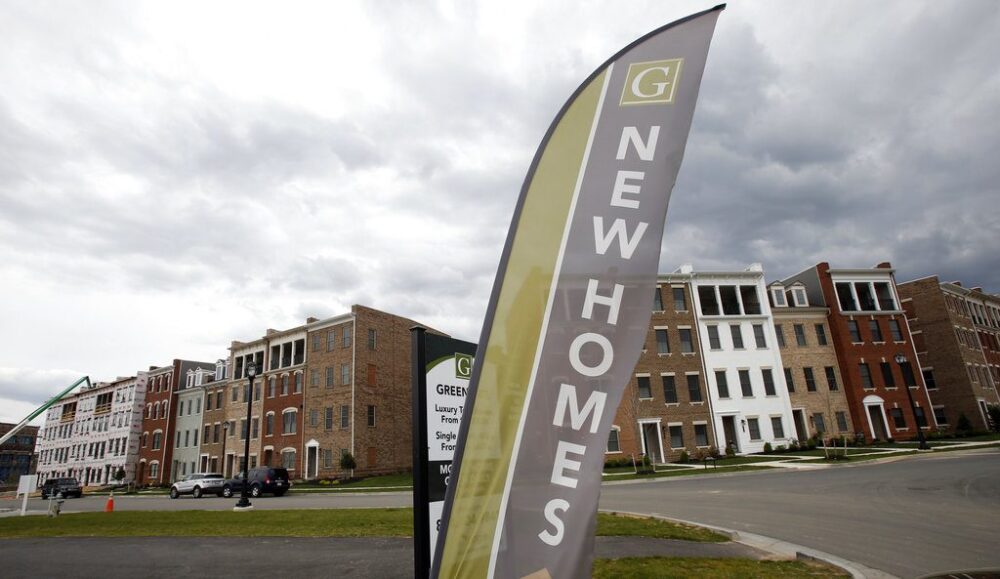
Federal funding coming to help Virginia’s affordable housing problems
More than $55 million will be distributed to redevelopment and housing authorities in 26 different localities across Virginia. The federal...

Opinion: Trump has shown he can’t keep Americans safe. In a second term, that could be disastrous.
As the 2024 campaign gears up, it’s worth emphasizing that being President of the United States is an extremely serious, uniquely high stakes job...



